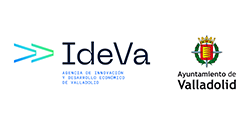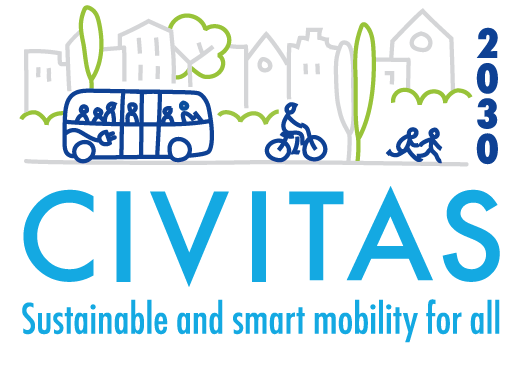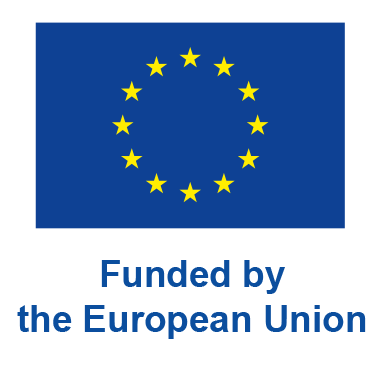
AYUNTAMIENTO DE VALLADOLID
Valladolid City Council is a local government public entity responsible for the provision and management of a number of different public services and utilities for the municipality. The City Council has a workforce of 3000 employees and an annual budget of more than 340 million of euros (2023).
Valladolid is an innovative city in which sustainable urban development, smart mobility and governance and social innovation configure a holistic approach of what a smart city means. Through its Agency for Innovation and Economic Development (IDEVA) benchmarks existing economic and innovation opportunities in the city and leads the development of projects of innovative character. The Agency for Innovation and Economic Development has carried out several European innovative projects in the fields of energy efficiency, sustainable mobility, circular economy, and nature-based solutions.
 Ángela Rivada is Coordinator of Economic Development and European Programmes inside of IDEVA. Angela is Telecommunications Engineer and Economist with more than 20 years of experience in Project Management, focused on innovation and technology. Angela has a Master Degree in European Project Management, and she is responsible for coordinating Smart City Projects at Valladolid City Council. Angela has participated in the design, analysis and coordination of numerous initiatives and projects focused on innovation applied to cities, mainly in the field of sustainable mobility, energy efficiency and ICT implemented by innovative finance schemes.
Ángela Rivada is Coordinator of Economic Development and European Programmes inside of IDEVA. Angela is Telecommunications Engineer and Economist with more than 20 years of experience in Project Management, focused on innovation and technology. Angela has a Master Degree in European Project Management, and she is responsible for coordinating Smart City Projects at Valladolid City Council. Angela has participated in the design, analysis and coordination of numerous initiatives and projects focused on innovation applied to cities, mainly in the field of sustainable mobility, energy efficiency and ICT implemented by innovative finance schemes.
Angela is leading the work team in the Agency for Innovation (IDEVA) on the SPINE project (2 project managers and supported by other areas and experts of the City Council). The City Council is in charge of run and develop the Living Lab, and also organizes the implementation of solutions in the city. For these tasks, IDEVA is working and collaborating in a very close way with the public transport operator (AUVASA). AUVASA is a public company belonging to the City Council.
Valladolid has been working for years in the framework of the different European innovation programmes through several projects, many of which fall under the concept of “lighthouse” or “pilot” projects. As result of this work and commitment showed, Valladolid was selected in May 2022 to be part of the European Mission, “100 Climate-Neutral and Smart Cities”. Valladolid is committed to becoming a benchmark city on a European scale in its innovative and inclusive bid to achieve climate neutrality by 2030.
In the case of SPINE project, Valladolid City Council considered this project like an initiative completely aligned with the objectives of reduction of emissions for the Mission. Therefore, when AUVASA presented its interest to participate in SPINE and asked for support, Valladolid City Council decided to get involved like a twin city in order to advance towards a more sustainable mobility in the city.
Mobility and Transport are one of the main systematic levers identified to achieve the aim of climate neutrality in 2030 in Valladolid. The city has to work to boost a modal change to increase the demand of the public transport and to reduce the use of motorized and private vehicles.
SPINE will give the city the opportunity to develop digital tools for short-term predictions in order to improve the capabilities of the policymakers and to improve the making-decision process.
Digital Twin models will permit the public transport operator, together the mobility area of the city, to make operation test and identify needs or improvement points.
Another important contribution of SPINE for Valladolid will be the use of standardized indicators to measure the impact of actions or policies developed by the Municipality.
The aim of Valladolid´s role is to accelerate the progress towards climate neutrality by reinforcing public transport systems through their smart integration with new mobility services, sharing schemes, active transport modes, and micromobility.
The objective is leading the transition to a more efficient, sustainable, resilient, and inclusive Public Transport system in Valladolid.
Valladolid City Council is expected to achieve:
- An increase of Public by 30%, compared to the baseline at the start of the project by setting an ambitious work plan.
- Increase user satisfaction with Public Transport by 25%.
- Reinforce Public transport systems through their smart integration with new mobility services, connected and automated mobility, sharing schemes and introduce bicycle transport modes by 10%.
This ambitious work plan also combines a wide engagement and communication plan for raising awareness of SPINE solutions including Public Transport rebranding campaigns and best practice activities to maximize adoption and increase the use of Public Transport and integrated mobility solutions.



